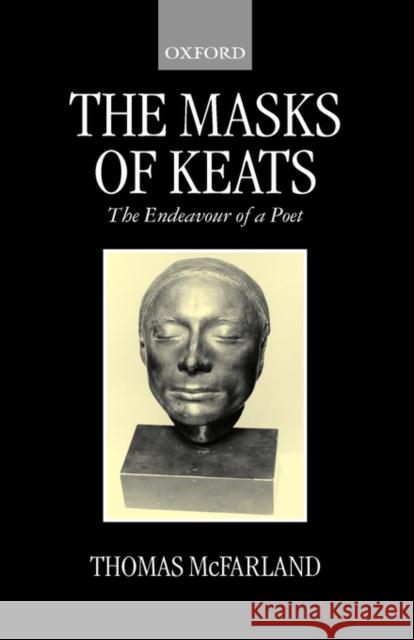The Mask of Keats: The Endeavour of a Poet » książka
The Mask of Keats: The Endeavour of a Poet
ISBN-13: 9780198186458 / Angielski / Twarda / 2000 / 264 str.
This book surveys the poetic endeavor of Keats and urges that his true poetry is uniquely constituted by being uttered through three artificial masks, rather than through the natural voice of his quotidian self. The first mask is formed by the attitudes and reality that ensue from a conscious commitment to the identity of poet as such. The second, called here the "Mask of Camelot," takes shape from Keats's acceptance and compelling use of the vogue for medieval imaginings that was sweeping across Europe in his time. The third, the "Mask of Hellas," eventuated from Keats's enthusiastic immersion in the rising tide of Romantic Hellenism. Keats's great achievement, the book argues, can only be ascertained by means of a resuscitation of the defunct critical category of "genius," as that informs his use of the masks. To validate this category, the volume is concerned throughout with the necessity of discriminating the truly poetic from the meretricious in Keats's endeavor. The Mask of Keats thus constitutes a criticism of and rebuke to the deconstructive approach, which must treat all texts and must entirely forgo the conception of quality.











